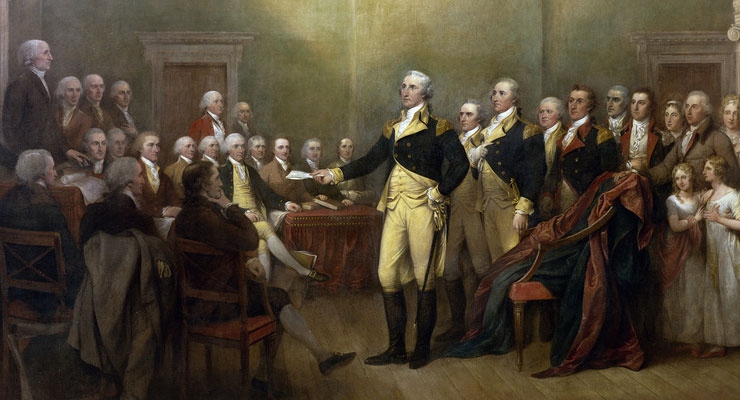
Politics originated the first time two individuals found it necessary to negotiate an interaction between them. The stronger of the two pursued his own interest, whether or not it was to the advantage of the weaker. The political system that currently dominates world governments evolved from that point. Political leaders have always been the individuals that were able to amass the power necessary to pursue their own interest, even if it was at the expense of their contemporaries.
In America, Alexander Hamilton and Thomas Jefferson, remarkable men in their own right and honored as they should be for their contributions to our nation’s founding, are also the men who cultured the germs of our present disease by pursuing their own interest without regard for the destructive potential of the political system they established. Certain that their own view of the issues facing the new nation were superior to anyone else’s, they built organizations to help them aggregate the political power they needed to impose their views on the nation.
George Washington sat amid these strong personalities, and, as long as he was able, mediated the matters that concerned the country. As he did so, the dangers that awaited us were so apparent to him that he used his Farewell Address to warn us “in the most solemn manner against the baneful effects of the spirit of party”. He called partisanship an unquenchable fire that “demands a uniform vigilance to prevent its bursting into a flame, lest, instead of warming, it should consume”, and predicted parties were likely to become “potent engines, by which cunning, ambitious, and unprincipled men will be enabled to subvert the power of the people and to usurp for themselves the reins of government”.
I stand in awe of the clarity of Washington’s vision and his ability to master the passions that surrounded him. What an uncommonly strong character he must have had. As I’ve learned more about him, I’ve wondered why so little attention is paid to his political insights – until I realized that he was warning us against the very people who control our nation today – and they’re not going to call attention to the evils Washington foresaw.
Hamilton and Jefferson and their followers invented political parties and institutionalized their advantage by creating rules in the several states to preserve them and aid their operation. The problem is, partisan systems, by definition, exclude non-partisans. In doing so, they exclude those who put the public interest ahead of party interest. Instead, they vest political power in a small portion of the people at the expense of the rest.
Proclaiming ‘democracy’, and telling the people they have a voice in their government because they are allowed to vote for a candidate chosen for them by the vested interests that control party operations, has been incredibly successful. Gigantic financial interests, recognizing the power of the approach, have supported the mushrooming of party-based political systems around the world.
Political parties are not democratic; they favor power-seekers who form oligarchic power blocs that become an end in themselves and transcend the will of the people. Such systems fail to meet the needs of the people for the simple (and obvious) reason that their primary concern is retaining their power by favoring the portion of the electorate that supports them. In modern times, that support comes from big business (i.e., big money) and big business is favored equally by both parties, whatever lip-service they pay to democracy.
We have ample reason to know that party-based governments fail. Some fail cataclysmically like National Socialism and Russian Communism, others fail through corruption. They all fail because, without exception, parties put their own interests ahead of the interests of their nation. Parties are an irrational basis for a political system.
Our political system in the U.S. failed, not because of our Constitution, but because we allowed those “cunning, ambitious, and unprincipled men” to build the party-based monstrosity that controls us. If we can conceive a better political system than the one that brought us to our present pass, it might be possible to avoid the emotional (and possibly violent) rejection that is likely to ensue. History is strewn with similar periods of excess, all marked by some form of greed (usually greed for power), and all ending in revolution.
In spite of my disillusion with academia, I think scholarly discourse is the best way to avoid a disastrous end to our country. If we are to correct the evils that crush and exploit us, we must open our minds. We must examine the ideas that dominate our political thinking. We must understand why vesting power in political parties is insane.
Unfortunately, accomplishing that turns out to be difficult. The 200-plus years of our nation’s existence have created innumerable tentacles of habit and belief that have a firm hold on our minds. To loosen that grip we must pry back its fingers, one by one, with irrefutable logic. The fingers can be pried back through a thoughtful critique of politics by people holding different points of view, who wish to determine the best form of government.
Ahhh, but who among us has the will, the intellect, and the open mind necessary to undertake such a task?
Leave a Reply